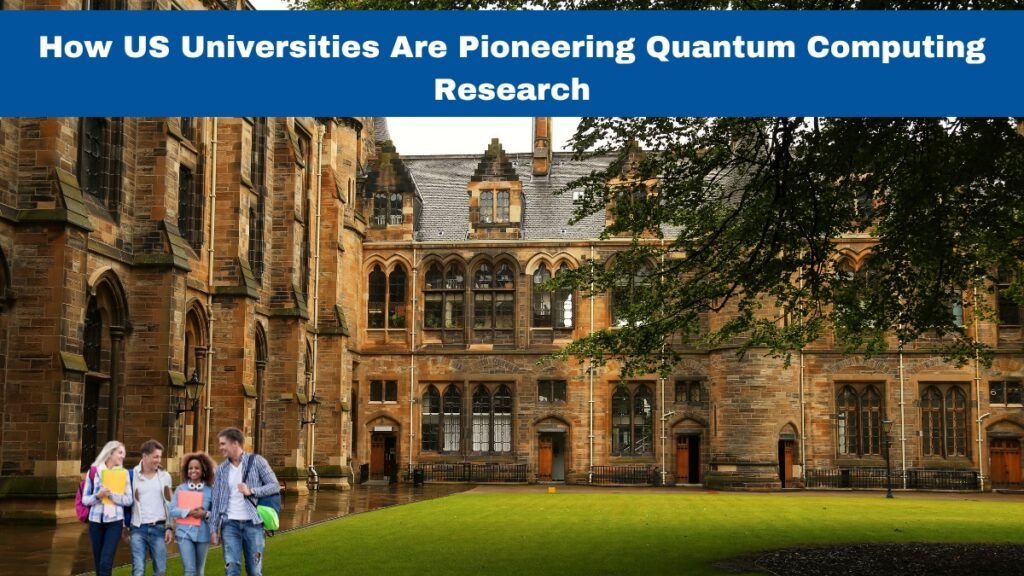Quantum computing stands at the forefront of technological innovation, promising to revolutionize industries from cryptography to material science. In the United States, universities are leading this transformative journey, driving research, fostering collaborations, and nurturing the next generation of quantum scientists.
The Quantum Landscape in U.S. Academia
American universities have long been incubators for groundbreaking scientific advancements. In the realm of quantum computing, institutions across the nation are establishing dedicated research centers, interdisciplinary programs, and state-of-the-art facilities to explore the complexities of quantum mechanics and its computational applications.
Leading Institutions in Quantum Research
Several U.S. universities have emerged as pioneers in quantum computing research:
- Massachusetts Institute of Technology (MIT): MIT’s Research Laboratory of Electronics houses the Center for Quantum Engineering, focusing on developing quantum algorithms and scalable quantum systems.
- Harvard University: Harvard’s Quantum Initiative brings together experts from physics, computer science, and engineering to advance quantum information science.
- University of California, Berkeley: Berkeley Quantum (BQ) integrates efforts from various departments to tackle challenges in quantum computation and quantum materials.
- University of Chicago: The Chicago Quantum Exchange, headquartered at the University of Chicago, collaborates with national laboratories and industry partners to accelerate quantum research and development.
- University of Maryland: Home to the Joint Quantum Institute, this university focuses on quantum physics and quantum information science, aiming to harness quantum phenomena for practical applications.
Collaborative Efforts and National Initiatives
Recognizing the strategic importance of quantum technologies, U.S. universities are actively participating in national initiatives and forming consortia to pool resources and expertise. The National Quantum Initiative Act, enacted in 2018, has catalyzed the establishment of research centers and facilitated partnerships among academia, industry, and government agencies.
For instance, the Quantum Information Science and Engineering Network (QISE-NET) connects students and researchers across institutions, promoting collaborative projects and knowledge exchange. Such networks are instrumental in addressing complex challenges that require multidisciplinary approaches.
Regional Hubs of Quantum Innovation
Beyond individual institutions, certain regions in the U.S. are emerging as quantum innovation hubs:
- Chicago Quantum Exchange: Anchored by the University of Chicago, this hub collaborates with national laboratories and industry partners to accelerate quantum research and development.
- Upstate New York: With significant investments from industry leaders, upstate New York is positioning itself as a center for advanced quantum research and development.
Educational Programs and Workforce Development
To sustain momentum in quantum research, U.S. universities are prioritizing education and workforce development:
- Curriculum Development: Institutions are designing specialized courses and degree programs in quantum information science, ensuring that students acquire both theoretical knowledge and practical skills.
- Interdisciplinary Training: Recognizing the multifaceted nature of quantum computing, universities encourage students to engage with disciplines such as physics, computer science, and engineering.
- Industry Internships: Partnerships with tech companies provide students with hands-on experience, bridging the gap between academic research and real-world applications.
Challenges and the Path Forward
While progress is evident, the journey toward practical quantum computing faces challenges:
- Technical Hurdles: Developing stable qubits and effective error correction methods remains a significant obstacle.
- Resource Allocation: Quantum research demands substantial investment in infrastructure and talent, necessitating sustained funding and strategic planning.
- Interdisciplinary Collaboration: Fostering seamless collaboration among diverse scientific domains is essential for holistic advancements.
Addressing these challenges requires a concerted effort from universities, industry stakeholders, and government entities. By leveraging their collective expertise and resources, U.S. institutions are well-positioned to lead the global quantum revolution.
Conclusion
U.S. universities are at the vanguard of quantum computing research, driving innovations that promise to reshape the technological landscape. Through dedicated research centers, collaborative networks, and comprehensive educational programs, these institutions are not only advancing the frontiers of science but also preparing a skilled workforce ready to harness the potential of quantum technologies. As challenges are met with ingenuity and determination, the contributions of American academia will undoubtedly play a pivotal role in the realization of practical quantum computing solutions.

